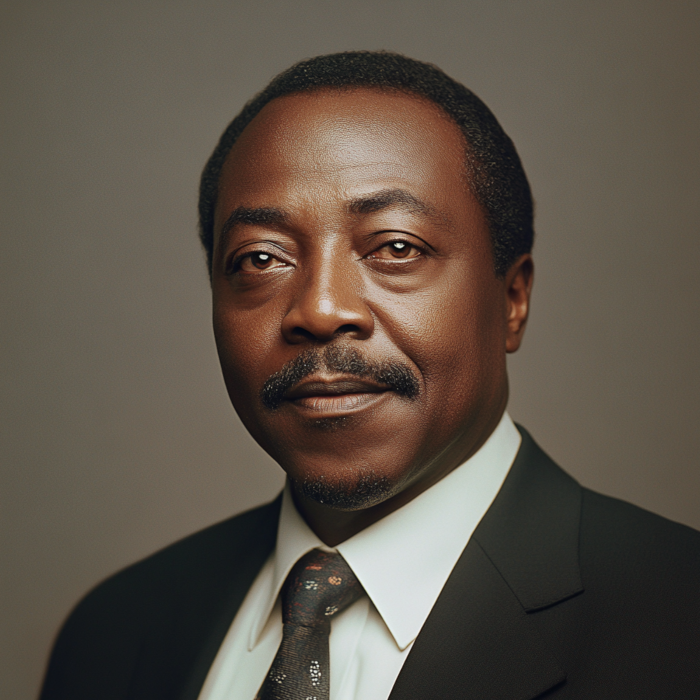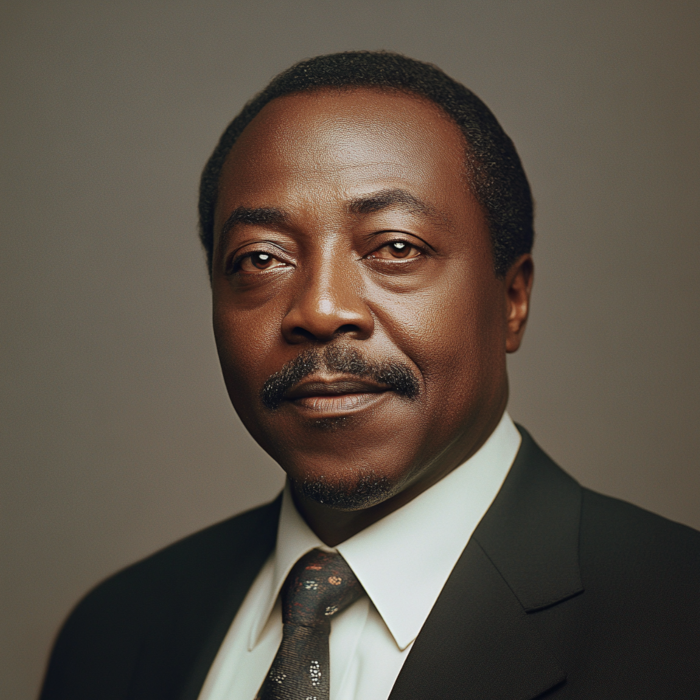


Joseph Kabila (born June 4, 1971) is a Congolese politician who served as the President of the Democratic Republic of the Congo (DRC) from 2001 to 2019. He became the world’s youngest head of state at the age of 29 when he assumed office following the assassination of his father, President Laurent-Désiré Kabila. Kabila's tenure was marked by efforts to stabilize a country ravaged by civil war, attempts at democratic reforms, and controversies over election processes and governance.
Birth and Family: Joseph Kabila Kabange was born on June 4, 1971, in the village of Hewa Bora, located in the Fizi Territory of South Kivu province in the eastern part of what was then Zaire (now the Democratic Republic of the Congo). He is the son of Laurent-Désiré Kabila, a revolutionary leader who would later become president, and Sifa Mahanya. Kabila spent much of his early life moving with his family between different regions and neighboring countries, as his father was involved in guerrilla warfare against the Mobutu Sese Seko regime.
Education and Military Training: Joseph Kabila received military training in Tanzania, Uganda, and Rwanda, reflecting the influence of regional powers in the conflicts affecting the DRC. He attended Makerere University in Uganda for a time and later received additional military training in China. His military background and the relationships he built during this period played a significant role in his future leadership.
Laurent-Désiré Kabila’s Presidency: Laurent-Désiré Kabila led a successful rebellion that overthrew Mobutu Sese Seko in 1997, ending his 32-year rule. Laurent Kabila became president of the newly renamed Democratic Republic of the Congo. Joseph Kabila, then in his mid-20s, was appointed as the chief of the Congolese Armed Forces (FAC).
Assassination of Laurent-Désiré Kabila: On January 16, 2001, Laurent-Désiré Kabila was assassinated by a bodyguard in the presidential palace in Kinshasa. Within days, Joseph Kabila was appointed as his father’s successor, becoming president of the DRC at the age of 29. His ascension was initially met with skepticism due to his youth and lack of political experience, but he quickly moved to consolidate power and gain the support of the international community.
Efforts to End the Second Congo War: One of Kabila's immediate priorities as president was to address the ongoing Second Congo War, a brutal conflict involving multiple African nations and various armed groups within the DRC. In 2002, Kabila played a key role in negotiating the Sun City Agreement, which led to a peace deal and the withdrawal of foreign troops from Congolese soil. The agreement also established a transitional government, which included Kabila as president and representatives from various rebel groups in key government positions.
Transitional Government and 2006 Elections: Under the terms of the peace agreement, the DRC transitioned to a power-sharing government aimed at stabilizing the country and preparing it for democratic elections. In 2006, the DRC held its first multi-party elections in over four decades. Kabila won the presidency in a run-off election against Jean-Pierre Bemba, a former rebel leader. The election, although marked by violence and allegations of irregularities, was seen as a significant step towards democratic governance.
Constitutional Reforms: During his presidency, Kabila oversaw the drafting and adoption of a new constitution, which was approved by a national referendum in 2005 and came into effect in 2006. The new constitution introduced a decentralized system of governance, reduced the presidential term from seven to five years, and limited the president to two terms.
Security and Governance Issues: Kabila’s presidency was marked by ongoing security challenges, particularly in the eastern DRC, where various armed groups continued to operate despite peace agreements. His government struggled to maintain control over the vast and resource-rich country, which faced persistent issues of corruption, human rights abuses, and weak state institutions.
2011 Re-Election: Kabila was re-elected in 2011 in an election marred by widespread allegations of fraud, voter intimidation, and irregularities. The election results were heavily contested, and international observers criticized the process, leading to significant political tension and unrest in the country.
Controversy Over Third Term: According to the constitution, Kabila was supposed to step down after his second term ended in 2016. However, Kabila remained in power beyond his mandate, citing delays in the organization of the next election. His refusal to step down led to widespread protests, political violence, and international condemnation. This period, often referred to as the "Kabila Crisis," raised fears of a return to widespread conflict in the DRC.
2018 Election and Transfer of Power: After significant pressure from both domestic opposition and the international community, Kabila eventually agreed to hold elections in December 2018. Kabila did not run for a third term but instead supported his chosen successor, Emmanuel Ramazani Shadary. However, the election was won by opposition candidate Félix Tshisekedi, marking the first peaceful transfer of power in the DRC’s history. Kabila's acceptance of the election results and the transfer of power in 2019 were seen as a positive step for the country's democratic process, although the election itself was also marred by allegations of fraud.
Role as Senator for Life: Following the transition of power, Kabila assumed the role of Senator for Life, a position accorded to former presidents under the DRC’s constitution. He has continued to wield significant influence in Congolese politics through his party, the People's Party for Reconstruction and Democracy (PPRD), and his alliance with other political forces.
Influence on Congolese Politics: Kabila's legacy is complex and contested. On one hand, he is credited with leading the DRC through a difficult post-war transition, achieving relative political stability, and overseeing the country’s first democratic elections in decades. On the other hand, his presidency is criticized for its authoritarian tendencies, the persistence of corruption, and the failure to bring lasting peace and development to the DRC.
Economic and Social Impact: Kabila's tenure saw some economic growth, particularly in the mining sector, but the benefits of this growth were unevenly distributed, and the DRC remained one of the poorest countries in the world. Human rights organizations have also criticized his administration for abuses, including crackdowns on political opponents, activists, and journalists.
Joseph Kabila's presidency was a significant period in the history of the Democratic Republic of the Congo, marked by efforts to stabilize a war-torn nation and transition to democratic governance. His leadership during a critical period in the DRC's history, particularly in the context of ending the Second Congo War and holding the country's first democratic elections in decades, is a key part of his legacy. However, his presidency also faced significant challenges and controversies, including issues of governance, corruption, and human rights abuses. Kabila's influence on Congolese politics continues, and his role in shaping the future of the DRC remains an important subject of discussion and analysis.

We use cookies
We use cookies and other tracking technologies to improve your browsing experience on our website, to show you personalized content and targeted ads, to analyze our website traffic, and to understand where our visitors are coming from. Privacy Policy.